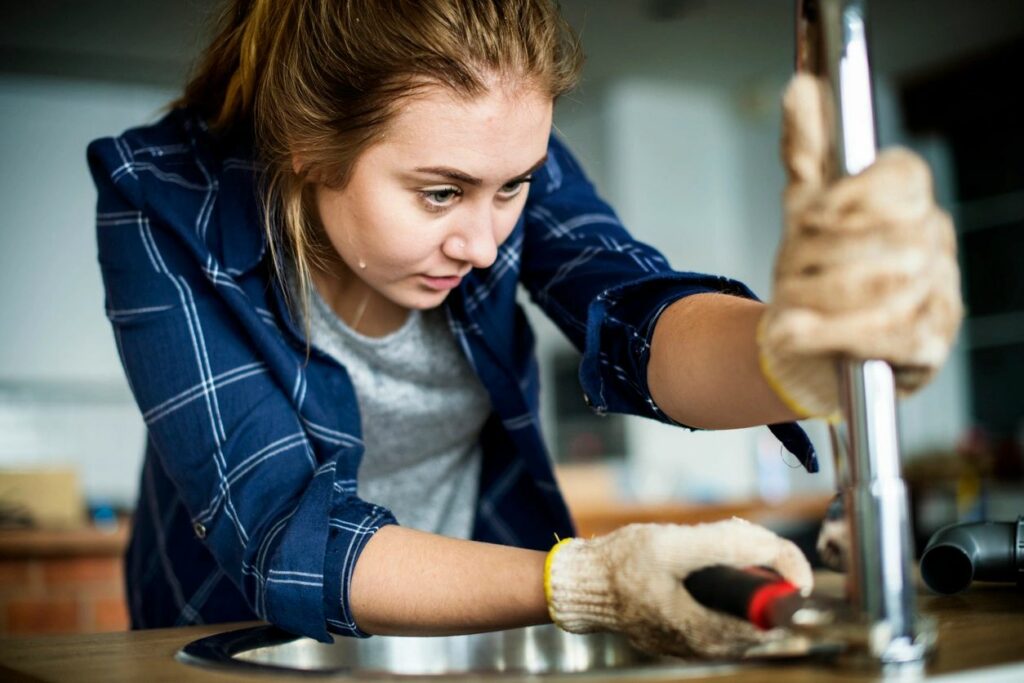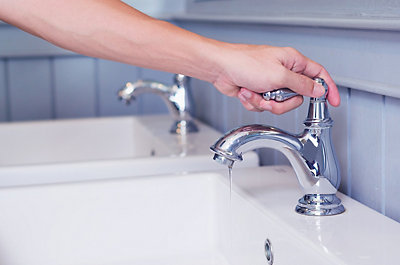Everybody maintains their own idea when it comes to Why It's Important to Fix Leaky Faucets.

Trickling faucets might appear like a small hassle, yet their impact exceeds simply the aggravation of the sound. From wasting water to sustaining unneeded financial prices and health threats, ignoring a leaking faucet can cause numerous effects. In this article, we'll delve into why it's important to resolve this common house issue quickly and effectively.
Waste of Water
Environmental Influence
Trickling faucets contribute dramatically to water waste. According to the Environmental Protection Agency (EPA), a solitary faucet trickling at one drip per second can lose more than 3,000 gallons of water annually. This not just strains water sources but additionally affects environments and wild animals dependent on them.
Financial Expenses
Boosted Water Costs
Beyond the environmental effect, dripping faucets can blow up water bills considerably. The gathered waste with time equates right into higher utility expenditures, which could have been stayed clear of with timely repair services.
Possible Residential Property Damages
Furthermore, extended dripping can cause harm to components and surfaces surrounding the faucet. Water build-up can create discoloration, deterioration, and even structural issues if left ignored, leading to extra repair costs.
Health Issues
Mold and Mildew Growth
The constant presence of moisture from a dripping tap develops an excellent setting for mold and mildew and mildew development. These fungi not only compromise interior air top quality however also pose wellness dangers, especially for people with respiratory system conditions or allergies.
Waterborne Diseases
Stationary water in leaking taps can end up being a breeding ground for microorganisms and other virus, boosting the risk of waterborne illness. Contaminants such as Legionella germs thrive in stationary water, possibly causing serious diseases when ingested or inhaled.
DIY vs. Professional Repair service
Advantages and disadvantages of DIY Repair Work
While some may attempt to repair a trickling faucet themselves, do it yourself fixings include their very own set of obstacles. Without proper expertise and tools, DIY efforts can exacerbate the problem or bring about incomplete repair work, lengthening the trouble.
Benefits of Hiring a Specialist Plumber
Working with a professional plumber guarantees that the underlying reason for the leaking tap is attended to properly. Plumbers possess the expertise and equipment to detect and fix tap problems effectively, saving time and minimizing the threat of more damages.
Step-by-Step Guide to Repairing a Dripping Tap
Tools Called for
Prior to attempting to deal with a trickling faucet, collect the needed tools, consisting of an adjustable wrench, screwdrivers, substitute components (such as washing machines or cartridges), and plumber's tape.
Usual Tap Issues and Their Solutions
Identify the kind of tap and the particular concern causing the drip. Typical troubles include worn-out washing machines, rusty valve seats, or damaged O-rings. Refer to producer directions or on-line tutorials for step-by-step assistance on repair services.
Safety nets
Normal Upkeep Tips
To prevent dripping faucets, carry out routine upkeep such as cleansing aerators, inspecting for leakages, and changing damaged components without delay. In addition, take into consideration mounting water-saving gadgets or upgrading to extra effective fixtures.
Value of Prompt Services
Attending to trickling faucets as quickly as they're discovered avoids more water wastage and potential damage, ultimately saving both water and cash over time.
Impact on Home Value
Assumption of Well-Maintained Home
Maintaining a residential or commercial property in good condition, consisting of dealing with upkeep issues like leaking taps, enhances its viewed worth and desirability among possible buyers or renters.
Influence on Resale Value
Properties with well-kept plumbing fixtures, consisting of taps, command greater resale worths in the property market. Addressing dripping faucets can contribute to a positive impression throughout property inspections and negotiations.
Ecological Duty
Specific Payment to Conservation
Taking responsibility for fixing dripping taps lines up with wider initiatives toward water preservation and ecological sustainability. Every individual's activities jointly make a considerable impact on protecting precious resources.
Lasting Living Practices
By prioritizing prompt repairs and taking on water-saving behaviors, people contribute to lasting living methods that benefit both existing and future generations.
Conclusion
Resolving a leaking faucet exceeds mere comfort; it's a vital action toward preserving water, decreasing financial expenses, and safeguarding health and wellness and residential or commercial property. Whether with do it yourself repair work or specialist assistance, acting to deal with dripping faucets is a little yet impactful means to promote accountable stewardship of sources and add to a much healthier, a lot more sustainable future.
How to Fix a Leaky Faucet: Step-by-Step Repair Guide
A leaky faucet may seem like a simple annoyance, but if it's not fixed promptly, that leak could cost hundreds to potentially thousands. From water damage to mold, mildew, and high water bills, even a tiny leak can be catastrophic if left unattended. Damage like this can even affect the overall value of your home, so it's important to take the right approach for leaky faucet repair. You may need the help of a plumber in some cases, but we've got a few tips you can try on how to fix a leaky faucet before calling the pros.
Four Faucet Types
When you're learning how to fix a leaky faucet, the first step is knowing what kind of faucet you're working with! There are four common types.
Cartridge Faucets
Cartridge faucets come in one- or two-handled varieties. In one-handled cartridge faucets, hot and cold water combines in a single cartridge. In the two-handled versions, hot and cold water are controlled separately and mixed in the faucet.
Ball Faucets
Ball faucets have a single lever you push up and down to adjust the pressure and rotate to change the temperature. A slotted metal ball controls the amount of water allowed into the spout.
Compression Washer Faucets
They're the oldest type of faucet, but they're still used in many homes — especially older ones. Compression faucets have two separate handles that, when turned, raise or lower the washer that seals a water valve. This valve stops water from flowing through the faucet when it is turned off.
Disc Faucets
Disc faucets rarely need to be repaired due to their maintenance-free design. The water flow is controlled by two discs — the upper one raises and lowers against a fixed lower disc, creating a watertight seal. If your disc faucet starts leaking, you may need to replace the seals or clean residue buildup from the inlets.
Fixing a Leaky Faucet
Step 1: Turn Off the Water
Whether you're learning how to fix a leaky bathtub faucet or how to fix a leaky kitchen faucet, always turn off the water supply to your working area when you're fixing a leak. The last thing you want is a flood added to your list of things to fix.
Look for the shutoff valves below your sink or around the tub and turn them clockwise to stop the water flow. If your faucet doesn't have shutoff valves, you may need to turn off the water for the whole house. Check to make sure it's off by turning the faucet on. If nothing comes out, you're ready to start the repair.
Step 2: Take Apart the Faucet
How you disassemble your faucet depends on the type of fixture you have. You can use a flathead screwdriver to remove the caps on top of the handle or handles for cartridge and compression faucets. Inside, you should see handle screws. Unscrew these with a screwdriver to remove the handle.
Disc- and ball-style faucets will typically have an inlet screw near the handle, and removing that will reveal the interior of the faucet.
Detach the Valve Stem
For cartridge- and compression-style faucets, you'll see the inner valve stem or cartridge once you remove the faucet handles. If you have a compression faucet, unscrew the brass valve stem. If you have a cartridge faucet, pull out the cartridge. If your cartridge has been in place for a while, it may require some tools or extra force to remove it due to mineral deposits.
Examine and Replace Parts
Once you've removed the parts, check them out to confirm what needs to be replaced. You may see corroded rubber washers, O-rings, stems, or cartridges. On a ball-style faucet, check the seats and springs for damage.
If you need to repair a leaky disc faucet, check the inlet and seals on the lower disc.
Once you determine what parts must be replaced, visit your local hardware store. Bring the damaged parts with you to ensure you can purchase the correct components to replace them.
Clean Valves and Faucet Cavity
If you've removed a stem or cartridge, you may notice mineral buildup in the faucet's threads. Use white vinegar to clean the valve seat by soaking it for a few minutes, then scrub it away with a soft toothbrush and rinse with warm water. You can also clean the interior of the faucet in the same way.
Reassemble the Faucet
Once your faucet is cleaned and the required parts have been replaced, it's time to reassemble it. Put the pieces back together and slowly turn the water supply back on. Doing this slowly is crucial because too much initial water pressure can damage the new hardware you've just installed.
https://homewarranty.firstam.com/blog/how-to-fix-leaky-faucet

Hopefully you enjoyed reading our topic on Leaky Faucets: Why They Happen & What to Do About Them. Thanks a lot for taking a few minutes to read through our article post. Don't hesitate to set aside a second to share this blog posting if you enjoyed it. Thanks so much for taking the time to read it.